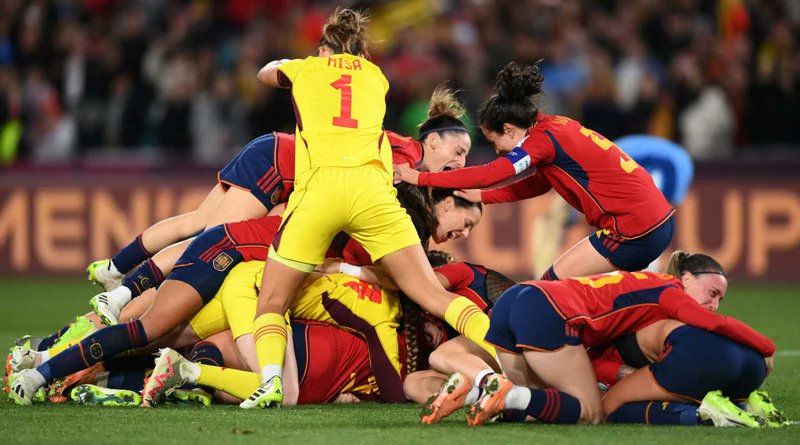Sports have always garnered attention, allowing their events to be used as powerful platforms for social change. Though most of the attention and credit has been assigned to male sporting events, women’s sporting events are finally getting the spotlight they deserve. This year alone, the WNBA draft viewership increased by a whopping 89%. Women’s sporting events, however, have become a dynamic platform for not only demonstrating athletic skill but driving significant social change. Female athletes as well as the people backing them have found themselves in a position of privilege, and they are using it to improve the unequal and sexist conditions in the sporting world.
Most recently, the incident involving the Spanish soccer president is a disheartening yet unfortunately common situation many women face. Whether it be in the sporting world or outside of it, it is not a rare thing to hear how a man has abused his position of authority to humiliate a woman. And in this case, that is exactly what it was: complete and utter unnecessary humiliation. However, the reaction of the Spanish women’s soccer team fully demonstrates just how much power female athletes hold. The players’ refusal to put up with this abuse of power cemented their independence and forced the federation to respect their autonomy. By sticking together to support their teammate they sent a strong message to the federation as well as the world: female athletes are not to be objectified or subjected to sexual harassment or assault. This strong and united front disproves the notion that female athletes should merely roll over and accept inappropriate male conduct. And not only does this message serve to empower female athletes, but women in society as a whole.
In addition to inspiring women to stand up for themselves in uncomfortable situations, the increased media attention that has fallen onto women sports has put them at the forefront of gender equality. The battle they fight involves more than just broader cultural challenges, but equal pay and equal opportunity in sports. It is true that for nearly all televised sports, male sports generate a significantly higher revenue than women sports, but this is not a complete and fair picture of the sporting world. Though the main justification offered by the mainstream media for the gender wage disparity is that women’s sports are less well-liked than men’s, the truth is that the lower revenue can be largely attributable to past restrictions on women’s participation in sport.
By the same token, athletes use their platforms to oppose discrimination and promote fair treatment in all spheres of life, especially in leadership positions in sports and the media. Female representation at the top levels of sports organizations is crucial, allowing female athletes to be supported by their peers and thus acknowledged in ways they had never been before. The aggressive push for more women to hold executive, coaching and refereeing positions in sports has revolutionized the women’s sporting industry, allowing female athletes to be protected like never before as they continue to excel in their respective disciplines.
And when it comes to their public image, many female athletes can influence politics, change the culture of sports and improve on gender equality issues by speaking up about their unfair experiences and encouraging their fans to take action in whatever way they can. Many times the disadvantages women’s sports face are born out of a lack of funding. Big corporations recycle the argument that when viewership goes up so will the funds for all of these hardworking teams. Therefore, there has been an incredible push to capture fans for women’s sports through new and improved marketing campaigns as well as larger investments into the women’s sports industry. In this way, they get the attention they deserve by shattering the glass ceiling and taking on prominent responsibilities as advocates for social change.
In particular, social media has done a lot for female athletes and teams. There have been significant increases in contact with new audiences year over year. Women’s sports still only have a fraction of the broadcasting budgets as men’s sports, but with the rise of social media marketing techniques many young viewers have been pulled into the women’s sporting world. In this way, women athletes are promoting gender equality in all facets of society in a variety of ways by speaking up and asking for fair treatment.
Carolyn Branigan, FCRH ’24, is an English and film & television major from Tinton Falls, N.J.









































































































































































































